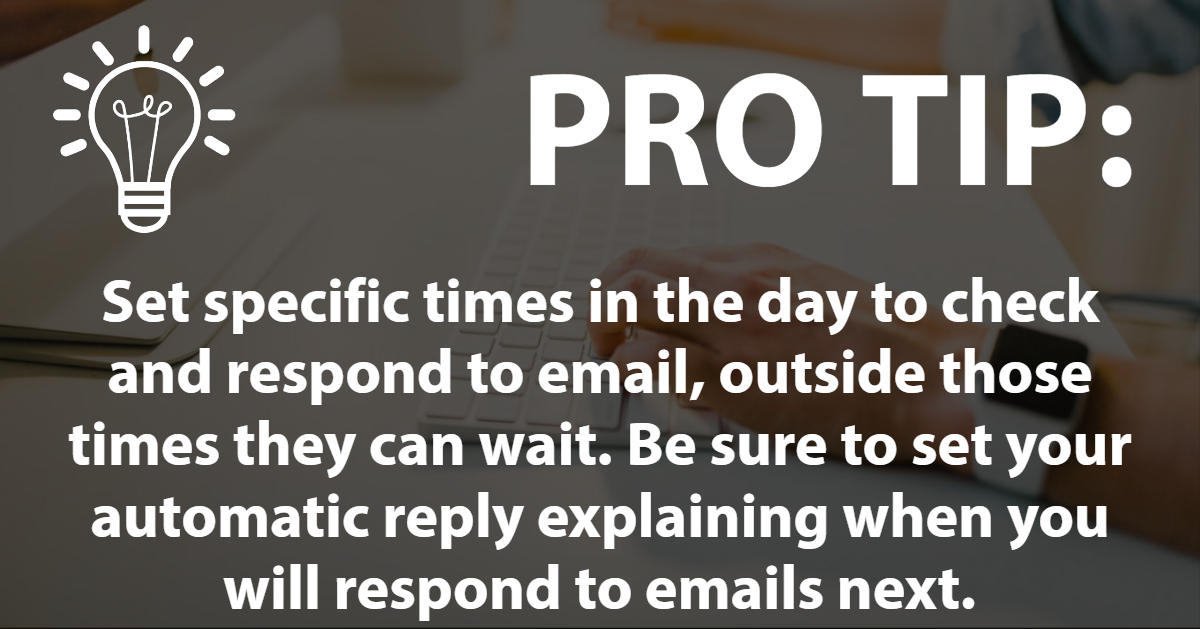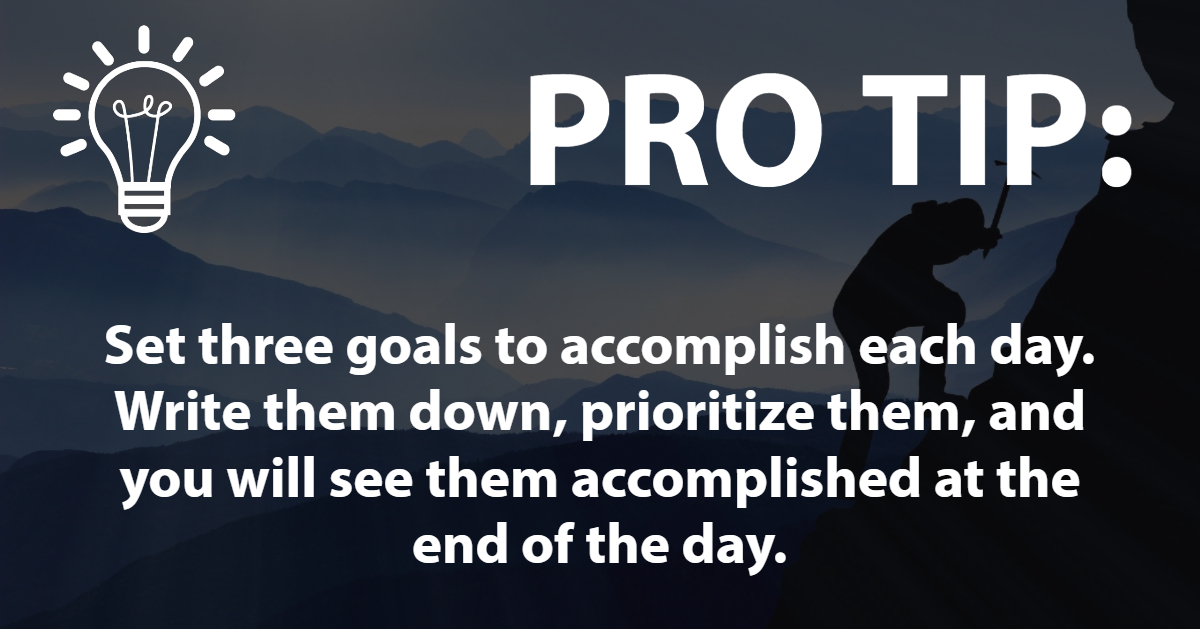“All work and no play makes…” an executive?
For many executives, that’s less of a spin on a quote and more of a reality. Without question, running a company, department, or even a new business takes a great deal of time and energy.
The problem is when these obligations begin to take all of those resources.
Being a leader is demanding, and companies rarely put limits on those demands. When it comes to setting boundaries with the time and dedication you give to your company or business, the burden falls squarely on your shoulders. Yet, being in charge of the lives of employees and the millions, if not billions, of dollars of a company does not make it easy to make your personal life a priority. This leaves most executives with grappling with their own million dollar question:
Is it possible to have a successful career and a happy personal life?
The short answer is yes. The practical answer is yes…but it’s challenging.
Having a Work Life Balance is Challenging
There is a reason why workaholic parents missing out on family life is a common theme in TV and media. A recent survey found that American parents spend only 37 minutes of quality time with their children per day.
Part of the issue is that high level executives and entrepreneurs are expected to be available at all times. We no longer have the luxury of a 9 – 5 business day thanks to a 24 hour news cycle and countless methods of communication. Add to this that many businesses are now global, or deal with a global partner. For many executives, it can seem like work truly never ends. Being constantly connected to your smartphone and computer to answer emails, make calls, and deal with work-related matters leaves little time for focused attention on anything else.
Add to that the stress of trying to make soccer games, making time to work on a marriage, or even making it home for dinner a couple of times a week and it’s no wonder 43% of parents describe their day as “hectic”.
Often the results of trying to do it all is that nothing or no one every really gets your all, including you. Stressed employees spend 46% more on healthcare costs than the average person, all to treat problems that occur as the result of stress. With everything going on in the life of an average executive, high levels of stress are seemingly unavoidable.
All of this is to point out a truth few want to admit: You can’t do it all.
If you are truly committed to establishing a real work life balance, you have to be able to accept this fact. However, just because you can’t do it all, doesn’t mean you can’t have it all.
That is where the balancing part comes in. You must first balance your expectations of yourself and your capabilities. Only then can you truly implement the strategies necessary to give you the work life balance you want.
Once you have come to terms with your personal limitations, you can use the tips that follow to effectively manage both your personal and professional obligations.
Ask For Assistance
Hopefully, your high powered position comes with a high yield salary. If so, it’s time to look at how you can leverage your income into a resource that frees up some of your time, allowing you to focus on more important personal and business items.
No, you can’t and shouldn’t try to outsource your job completely. What you want to do is take a look at the time-consuming tasks, specifically the ones that you cost you more time than brainpower. Typically this would include items such as:
- Answering emails
- Bookkeeping
- Returning low priority calls
- Placing orders and setting up deliveries
- Creating agendas
- Scheduling

While an executive assistant can typically handle these types of things, you can look into hiring a virtual assistant as a budget-friendly alternative.
On the personal side of things, you can enlist help for household tasks that take up valuable time you could be spending with your spouse or your children. Even on the days you manage to make it home at a reasonable hour, it’s likely that you find yourself met with chores and errands that don’t necessarily require you do them personally.
For many of us who are old fashioned, it may seem like a bit of a luxury to hire professionals like a house cleaner or personal chef. But make no mistake; these types of individuals are becoming more common and in demand for a reason. As lives become busier, the time-cost of things like cleaning and cooking are becoming equally, if not more important than the monetary cost of hiring someone to do them.
Additionally, you will find that a virtual assistant can be equally useful for personal tasks and just as effective. Some common personal tasks you can use a virtual assistant for include:
- Paying bills
- Ordering groceries
- Ordering household items
- Coordinating family schedules
- Sending Thank You notes
- Booking travel arrangements
Today, there are also several apps which allow you to shop for groceries online and have them delivered to your home. If you are particular with your food and like to eat healthy, there are community supported agriculture services which allow you to order local food directly from a farm. You can have a weekly delivery of your favorite food, saving you a trip to the grocery store.
The lesson here is that you have to be willing to let go of things that do not serve you or contribute to your overall happiness and sense of balance. Remember, having it all means you cannot do it all alone.
Manage Your Time
Entire courses and books have been written on time management. It is an essential step to take towards greater work-life balance. To manage your time in a way where you are more balanced with how you spend it, you need to take a few steps.
Identify What Takes Up Most of Your Time
To manage your time better, you first need to know what is taking up your time. If you are an executive and reading this, you have likely already done this before coming here. Work is the largest occupier of time for most people. It may be difficult for you to leave work because there is always something else to be done.
Once you know what takes up most of your time, you can identify reasons for the imbalance in how you spend your time. What is the reason you are working longer hours? Are the long hours actually resulting in better work?
Set Goals
Setting goals and sticking to them helps you focus your efforts. With a clear goal in mind, you will start to see changes in your behavior. Asking yourself “Does what I am doing help me reach my goal?,” will help you identify tasks that are time wasters or things you have been doing by habit. Set aside times when you will not be taking any non-emergency phone calls or emails so you can work on achieving your goal without interruption.Use Time Management Tools
We all know there is an app for anything and everything under the sun. Yet the computer in your pocket can be used for much more than posting to social media or playing a game. Take some time to try out a few time management and organization apps. They can help you focus your time and track how you are spending it. There is nothing wrong with taking some time so play a game on your phone, but if you track how much time you actually spend on it, you might be surprised.
Prioritize
Not everything you have to do every day has the same level of importance or need for expediency. Make a list of everything you want to get done in a day and select three of them. Prioritize those tasks over others and make sure they get done today. This will also help you feel accomplished each day rather than overwhelmed. Obviously, you should use your judgement if something comes up that needs to be addressed. However less important tasks can be set aside for a more appropriate time.

Practice Mind-Body Exercises
Stress stays in the body long after whatever has been causing the stress has ended. It can leave you feeling tense and on edge or filled with restless unfocused energy. To release those trapped emotions, you can practice mind-body exercises. Practices such as mindfulness meditation, yoga, going to the gym, running, and tai chi can all help with your mental health. Many of these activities don’t take that much time and can be done anywhere. For example, meditation can be done anywhere you can sit comfortably and there are guided meditations on Spotify and YouTube you can follow along with.
Give time to yourself. When you focus inward and move your body to stretch out your muscles and ligaments, you help restore peace within your mind and body. Incorporating a mind-body practice into your daily routine will help you deal with an overwhelming work day. They help focus your mind on the tasks at hand and make better use of your time.
Schedule Downtime
Take a look at your calendar. It’s probably filled with appointments, meetings, and tasks that need to be accomplished each day. What you probably don’t see is “you” time, time you have set aside for yourself to focus on a project or task. It’s easy to say, “I have time between this meeting and that one so I’ll take some ‘me’ time then.” Yet when the time comes, something always seems to pop up.
Put your “you” time on your calendar. Block off time where you can only be reached in an emergency and stick to that time. It can be a hour in the afternoon to focus on a personal project or time before work to go for a run. Let people know you will be unavailable and stick to it.
Whatever you decide to do with your downtime, it is important for it to be an official part of your day. If you don’t, it is easy to lose sight of what you want out of life.
Lead By Example
Your employees watch and take their cues from you. If they see someone who is in early, stays late and never takes a vacation, they will likely emulate that attitude. If they see you taking breaks they will be encouraged to do the same, trusting they will not be cut short.
In short, you need to walk the walk. Live the company culture that you are trying to create. There are many executives that tell their employees they need better work life balance. But, by not demonstrating it, employees cannot trust that their efforts will be respected.
Empower Yourself
You have the power to make changes in your life to be able to spend more time with your family and on self-improvement. You time and energy are limited resources, so manage your time in a way which leaves you feeling energized and don’t be afraid to ask for help when you need it.
It will take some thought and effort, however you can make changes in your life to bring it back in to balance. You can find the harmony and peace you have been missing and your friends and family will appreciate you making more time for them. You will also find a deeper appreciation for making time for yourself.
Time does not have to control you. Work does not have to enslave you. You can create a work life balance and live the live you have been seeking.


Recent Comments